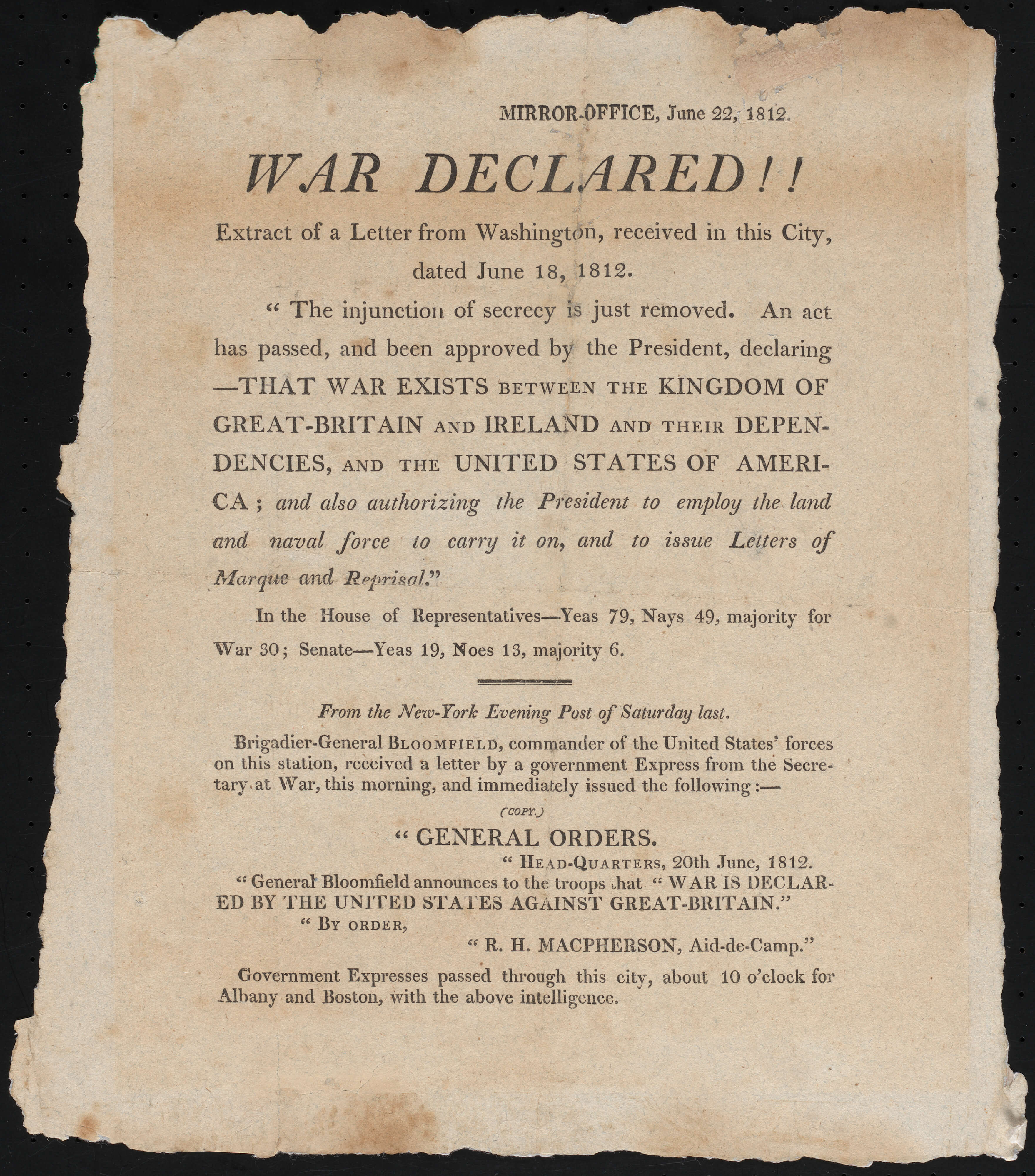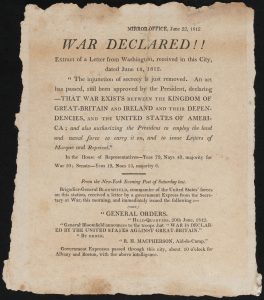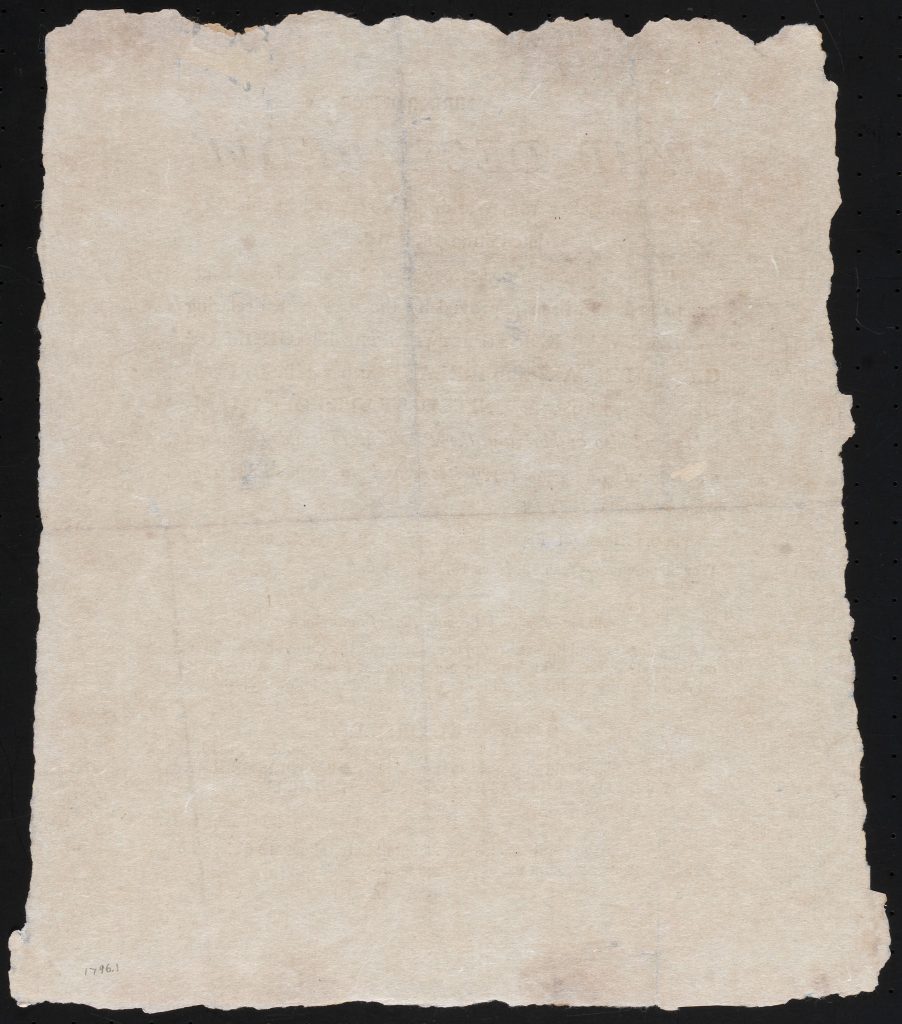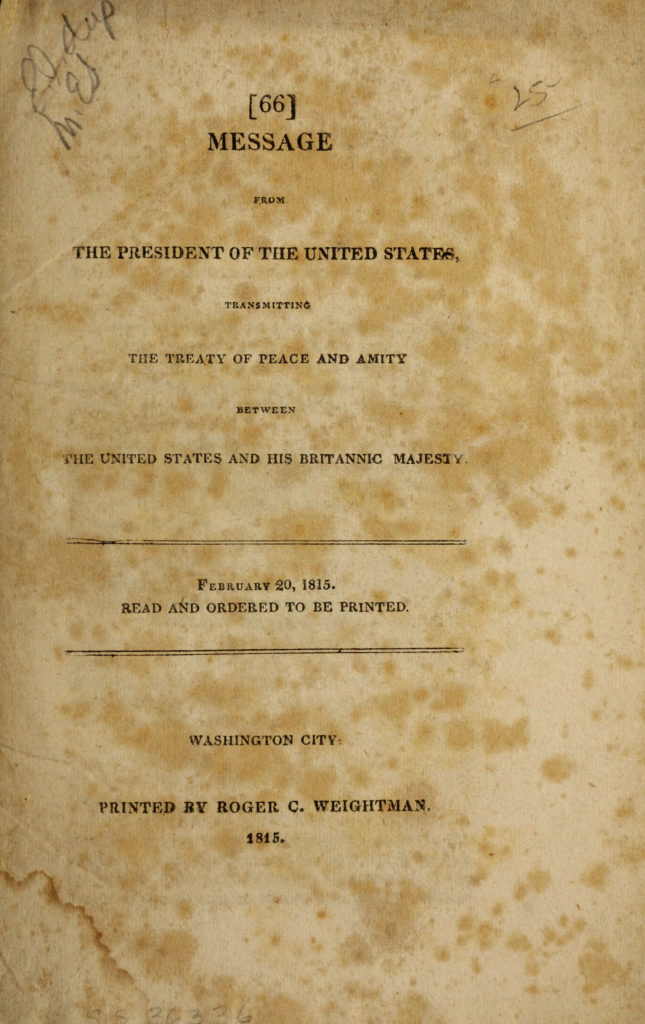


WAR DECLARED!!
Are double exclamation points a sign of excitement or dismay? This June 22, 1812 supplement to the Connecticut Mirror, a Hartford newspaper, demonstrates the ambivalent feelings of many New Englanders toward the new conflict between the United States and Great Britain. As Mirror editors Horatio Hale and Charles Hosmer opined in the paper’s next issue, “our belief is that the war will produce more injury than good, and that our future Elections will convince our rulers that it is unpopular.” And yet, now that the die was cast, it was their hope that “as Americans . . . each conflict may be crowned with success to our arms,” and that “we may be UNITED in defending our rights and honor in War.” In a region controlled by ardent Federalists, whose fortunes were tied to foreign trade, a war with Great Britain (America’s greatest market and purveyor) could only result in financial ruin. As the war progressed, the longed-for victories came, but the unity vanished. In 1814, representatives from the New England states met at a convention in Hartford, Connecticut and contemplated secession from the Union. Only peace and the return of prosperity could usher in the “Era of Good Feelings.” So perhaps there was not much ambiguity in this broadside after all.
The declaration of war on June 18, 1812 was not sudden or unexpected. Congress debated in secret for weeks before voting and President James Madison had been weighing the nation’s preparedness since the December before. Supporters of a war against Great Britain in the western and southern states outnumbered oppositional Easterners. For people who won their livelihoods from the sea, war was not just a hardship, but could put an end to their way of life. New England vessels carried fish, livestock, and timber to ports around the world. A war would put sailors out of work, and also all the people involved in the allied trades: coopers, blacksmiths, sailmakers, shipwrights, rope makers and ship chandlers. Even farmers, who looked to foreign markets to dispose of their surplus crops, felt the pinch. The lifeblood of the region ceased to flow with the embargoes imposed by the Federal government in the years leading up to the war, and hostilities did not improve the situation.
Creator
Connecticut Mirror
Date Created
June 22, 1812
Medium
Ink, Paper
Dimensions
[H]13 in. [W]11 3/4 in.
Catalog Number
1796.1
Credit Line
USS Constitution Museum Collection.
Terms of Use

This work is licensed under a Creative Commons Attribution-NonCommercial-NoDerivs 3.0 Unported License
